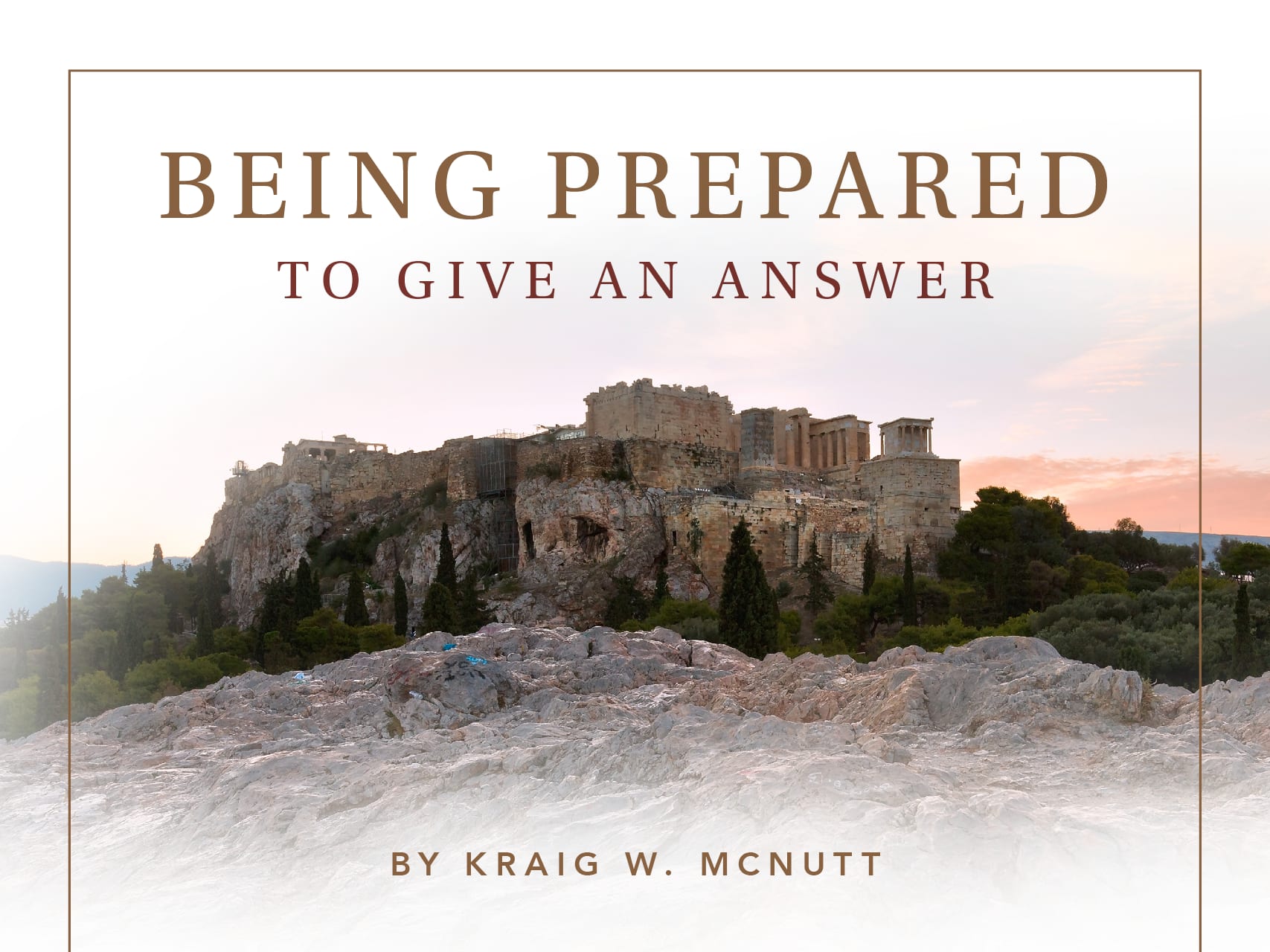Being Prepared to Give an Answer

Most of us will never face serious persecution for sharing our faith in Christ, but we may still be quite nervous about taking a public stand for Christ among our unbelieving coworkers and neighbors. We know we should be ready with a gospel-based response, but we also know we might be shamed or ostracized for speaking up.
How, then, can we “always be ready to give an answer to anyone who asks about the hope you possess” (1 Pet 3:15)? Let’s consider practical lessons from the apostle Paul’s experience when he stood before the council of Areopagus (Mars Hill), as recorded in Acts 17.
We first notice in verse 16 that Paul’s spirit was “greatly upset because he saw the city [Athens, ca. AD 50] was full of idols.” Paul was likely familiar with Athens’s religious history, centered on the Acropolis with its copious monuments, temples, and structures dedicated to the panoply of Greek gods and heroes—especially the cults of Athena and Dionysius. The Athenians even erected a monument dedicated to the “unknown god.”
The Athenians’ pagan religiosity troubled Paul’s spirit. It upset him because he was convinced of the truth that the Lord “does not live in temples made by human hands” (v. 24). This start to Paul’s experience presents the key to readiness to express the hope we possess: our hearts break for what breaks God’s heart. Are we moved by what moves God’s heart?
Second, Paul was also convinced that standing for the truth meant that the underlying truths of the gospel could offend people. In verse 31, Paul states that God will one day judge the world through Jesus, who was raised from the dead! We know from literature of the time that the Greeks did not believe in resurrection—and surely Paul knew this, too.
So why did Paul endorse the resurrection before people who would find his reasoning offensive? His example teaches us that although the gospel may cause offense, we are not to back down from accurately proclaiming it, no matter the potential cost. We are careful not to be the cause of offense through our behavior, attitude, or character, but the truth of the gospel will challenge any person, community, or culture that worships idols instead of the one true God.
Lastly, verses 22–31 reveal that Paul understood the Athenian culture, even quoting some of their own poets in his presentation of the gospel. Applying his fluency in their language and culture, Paul gained a hearing among some of his audience: “some people joined him and believed” (v. 34). He started where the Athenians were and then proclaimed the truth of the gospel in a reasoned address.
Paul’s familiarity with great Athenian poets, playwrights, and philosophers, past and present, enabled him to use this cultural heritage in laying the foundation for a presentation of the gospel. The lesson from his experience challenges us today to be grounded in the Scripture and sufficiently fluent in the language of our culture, so that we might be heard when the opportune time comes for us to “give an answer to anyone who asks about the hope you possess.”
The story in Acts 17 of Paul’s proclamation of the gospel before the council at the Areopagus suggests three key takeaways that can help us be ready for opportunities in our own contexts. Start by asking God to break your heart with what breaks His. Then be sure that it’s the truth, not your behavior, attitude, or character, that offends people. Finally, know the cultural language of your audience.
About the Contributors

Kraig W. McNutt
Kraig McNutt is Executive Director of Marketing & Communications for DTS. He studied philosophy at Indiana University (BA) and holds degrees from the University of Kentucky (MSLS) and Grace Theological Seminary (MDiv). He is also an author and historian on the American Civil War.

